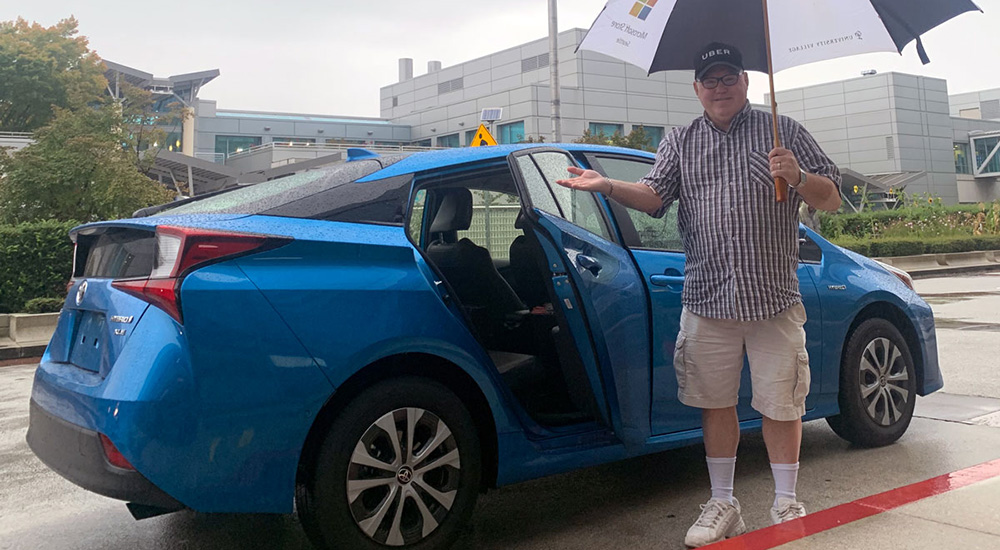As an Uber driver, John (pictured above) spends a portion of his days getting people where they need to go. To do so, John has traveled a long road himself.
For many years, the Navy Veteran struggled to manage his mental illness. It made it difficult for him to keep a job and contributed to low self-esteem.
By the time John was referred to the VHA Vocational Rehabilitation (Voc Rehab) program, also known as the Therapeutic and Supported Employment Services program, at VA Portland Health Care System (VAPORHCS), he hadn’t worked for several years.
Offered throughout VA, VocRehab helps Veterans–including those with serious mental illnesses–overcome barriers to employment and stay in the workforce.
In some cases, Veterans are placed in limited-term paid positions, often within a VA medical center. That helps them gain hands-on skills and reinforces behaviors, such as the ability to work well with others, that are critical to long-term employment.
In other cases, program participants work one-on-one with case managers who function as job coaches helping Veterans:
- Identify appropriate, community-based job opportunities.
- Apply for positions.
- Prepare for interviews.
- When appropriate, provide ongoing support with navigating job-related issues.
“Mental illness isn’t going to get the better of me.”
“My main job is to get people from point A to point B, but the social interaction helps me a lot,” says John, 57, who first began to drive for Uber in February 2016 and has since earned more than 1,500 five-star ratings.
“The social interaction makes me feel good inside. Most people are nice and really appreciate what I do. That gives me a positive feeling inside. I feel I can accomplish this task and that mental illness isn’t going to get the better of me. Not anymore,” adds John.
His journey back to the world of work wasn’t quick or easy. Long before John felt ready to try to return to work, he sought help with personal challenges through Footsteps to Recovery at the Psychosocial Rehabilitation and Recovery Center (PRRC).
The PRRC outpatient program promotes skill building, socialization and the development of coping strategies for Veterans with chronic mental illnesses. Participants are asked to consider what will make their lives more meaningful and manageable–perhaps even joyful. They work with staff members to set goals that reflect their desires.
“My illness is not who I am.”
“The Footsteps program helped me understand that my illness is not who I am. It helped me understand that I can resolve issues and have a positive impact on my life and on my family. I can be more than just John who has this illness,” he said.
An introvert by nature, John works to anticipate the needs of his passengers. Some want to sit in silence. Others prefer to chat, and John obliges, often working in a good-natured joke or two. He also carries complimentary bottles of water, chewing gum, cell-phone charging cords and local maps and restaurant guides for out-of-towners.
What advice does John have for Veterans who have shared his struggles and worry that they might never be able to return to work?
“Get in there, share your story and hear what other people are going through. You can realize that there is a future for you outside of your mental illness.”
Anna Robaton-Winthrop is a volunteer with VA Portland Public Affairs.
Topics in this story
More Stories
Study underscores important role COVID vaccination can have in protecting Veterans from infection and reducing long-term health consequences
Columbia VA’s robotic surgery teams completed their 800th robotic surgery and are on schedule to hit 1,000 by the end of the year.
In a decentralized clinical trial, Veterans can participate from their own homes or local VA instead of having to travel to a research site.








I am interested in talking to someone and asking some questions about this program.
Can I talk with John and/or Anna Robaton-Winthrop?
How did the gentleman get his mental illness? Too long on ship? The Vietnam War years? I would like to know, was it service connected?
Incredible